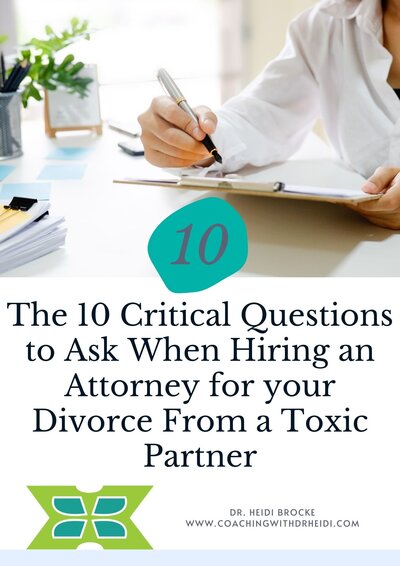Hey, welcome back!
This is my fourth post, and I apologize for having a few days go between the last post and now. I’m getting ready for the first annual “It’s Not Normal. It’s Toxic” conference, which is being held tomorrow and Sunday in Saint Louis! It’s going to be great, I’m excited! But it feel like I had a full week of preparation, so, again, I meant to get this post out before now.
Thanks again to the followers that are sending in questions. They are great questions! Some of them are stirring up a little yuck for me, I’m not going to lie, as I’m thinking about the answers to them. One of the questions that came in over the last couple of days was “Why is it that a toxic person is nice to others or nice in public and then mean or disrespectful at home or in private?” The person who submitted the question said that they grew up in this time of environment, and growing up in it they never understood why everyone was nice when there was people around but then the whole entire atmosphere would change when you were in the house.
It’s kind of a difficult subject, and if you were growing up in it, it’s very difficult. But let’s go back to the toxic person in general. And again, if you’re just tuning in, I use the words “toxic person” to encompass a lot of different personality types because at the end of the day, from the way I teach, it doesn’t matter what kind of personality type they have, it only matters whether or not they are healthy for you or not. So, when I say “toxic person” or “toxic relationship,” it’s just engulfing any type of relationship that may not be healthy for you.
As you know, a toxic person that is truly toxic needs certain things in their life in order to survive. And we’ve gone over this in previous posts, but they need attention and admiration. The other thing they need is control and power; those are two of the things I’m going to be focusing on today while I’m answering this question.
By definition, a narcissist (Okay, I pulled this straight out of Wikipedia on the internet) is one who has exaggerated feelings of self-importance. They have an excessive need for admiration from others. They lack empathy, or in other words, they don’t care about other people’s feelings or the consequences of hurting other people’s feelings. They think about achieving power and success continually. They are very driven by money. They are concerned by their physical appearance and how other people see them. They will take advantage of people for self-serving reasons. They exaggerate their skills and accomplishments to be bigger than they truly are. They pretend they have highly important relationship with people of higher status.
That is just kind of a background of the narcissistic-type personality, and if you look at the descriptions and the definitions of other personalities, they aren’t going to fit with this one exactly, but for the purposes of answering this question from the listener today, this will be our point of reference.
Back to the question: Why are they nice to others and then mean to those that are closest to them? Or nice to others in public and mean in private? Because they are concerned so much with the way others see them and the way they look from the outside, that’s what drives this type of switch in personality. They are usually very charming individuals and can be very charismatic. They are very presentable on the outside. Everybody thinks they’re Mr. Nice Guy or they’re the funny guy or they’re the one that plans everything and gets the group together. They can pour it on to make others believe that they are a very nice, caring, loving person. So, I hear it all the time from my clients when we talk about what the steps there are to remove yourself from this type of situation, and when I talk about finding a support system, that is very difficult for these people because what happens is you start telling others what is actually going on at home or in private and no one believes you! The outward presentation and the public presentation of the toxic person is completely different than the one that those they are closest to see at home.
Anyone who has something to offer a toxic person, they will make sure to impress those people or take very good care of them or give them specials gifts or special deals on business stuff. They make very good accommodations for those people, while the people that live with them, love them,or share a house with them would never be offered the same accommodations or be presented with the same amount of niceness or kindness.
In the beginning of relationship, you were probably one of the admirers. There was some point in your relationship when they were nice to you also. But as they transition you into the abusive cycle, you turn from the admirer into the one that is being controlled. So you switch the supply for them. First you supply them with admiration and attention, and now you’re supplying them with that need to control. So you are now a different set of statistics, for lack of a better word, in their life because now they need to keep control of you.
They were probably still be very nice to you in public because, again, how they treat you in public is probably going to reflect on them, and they will portray that the relationship is very good, whether it is a parental relationship or a romantic relationship or a boss/coworker relationship. When they want to present themselves as good, they will present the relationship as good. But at home in private, there is very little support from them and very little acknowledgement of a normal, supportive relationship.
You are more like an extension of them! If they can use you to make themselves look better, that’s what they do. So that’s where your feelings get skipped over as well. They perceive that you are an extension of them, so they consider the consequences of hurting your feelings as not affecting them at all.
Now, this is confusing enough for an adult. I know that because I went through it. But imagine if you were a child and you were being raised in this environment. Constantly walking on eggshells to predict the mood of the parent that was nice to them at the restaurant but was completely opposite in the car, or was nice to them at their birthday party but as soon as everybody left turned into a completely different personality. I used to love having company around because he was always nicer to me and always nicer to our girls. It was much invited to have company all the time because it kept the “good guy” out a lot more.
If you are drawing attention to them in a positive way, they are going to treat you with a lot more respect. Say you’re a child and you’re very good at a sporting event or you’re very good academically, and you and your talents are making them look good…they will be very supportive of you in public. But if you go out to do whatever it is you’re doing or you do something wrong or you strike out or you fail the test or you miss the honor roll, that’s going to reflect on them negatively. Then you are going to pay for that because it’s not what you did that affects you, they perceive that it’s what you did that affects them. So, if you’re gaining them attention and helping them gain admirers, you will be treated much better than if you had accidentally made them look bad.
To the listener who brought me this question, it’s all about them looking good in public and gaining more and more admiration and attention. There is no respect or acknowledgement for your feelings in private. The self-centered, self-serving ego of the toxic person must control all of the situations in their life, and if you are the one living under their roof, they will control all the situations and the emotional levels in your life as well.
As an overview, the way they treat you has nothing to do with you, okay? It’s not whether you performed well or didn’t perform well, or were nice to them or weren’t nice to them, or if you were doing a good job or not doing a good job. It all has to do with how you, in their life, reflect on them and their social status. It’s very difficult to deal with the inconsistency and the unpredictability.
So, yes, this is a devastating type of topic that we talked about today, but you accept the fact that that’s what they do because that’s who they are. I’m sorry for anyone that has had to grow up in that type of situation. Adults can decipher it a little bit better, but for the kids and teenagers it is a very, very difficult, self-defeating type of environment to grow up in. I have a little background on my listener and I know that this person grew up in that kind of situation. So, now is the time to learn the red flags and make sure that you don’t fall into that same type of relationship in your adult life.
Thank you so much for the question, and the other questions that have been coming in are phenomenal. I will be doing another post next week. If you are looking to get some questions answered, you can send me a message on the Coaching with Dr. Heidi Facebook page, the Coaching with Dr. Heidi Instagram account, or the website! I can get questions through all of those. There may even be a way for you to send a question through some of the podcast apps.
Thank you for being here! Wish me luck at the conference! At some point, I would love to meet all of my followers and listeners, because I would love to hear everyone’s story!
Thanks again for being here!









+ view comments . . .